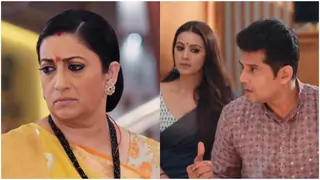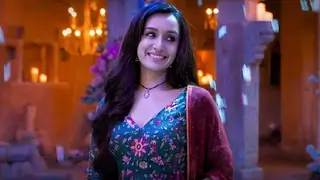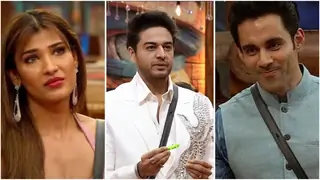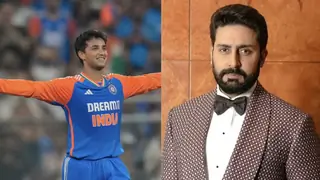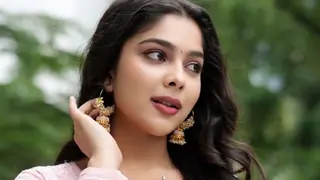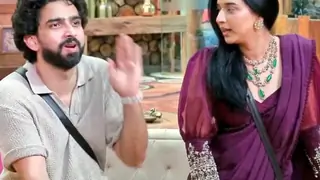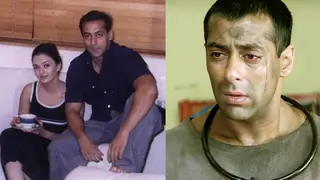Posted:
Somini Sengupta - E+ Magazine/New York Times
An Idol Recipe
Indian Idol is one among a spate of TV talent hunts that have mushroomed across the country
For those who came in late for Indian Idol, one of India's most popular TV talent hunt shows, the news is that the second season of this highly popular contest was won by Sandeep Acharya. But for many hopefuls this journey came to a tearful end. Though Indian Idol 2 ended some time ago, let's take a step back to know what the participants as well as the audience went through during the contest.
Antara Mitra from Bengal; Amey Date from Mumbai; Sandeep Acharya from Rajasthan and N.C. Karunya from Hyderabad are the most talented among a bunch of contenders. Winnowed from some 30,000 contestants who line up for the auditions, these four contestants are among the show's finalists.
They are all in their late teens or 20s. None of them are low on grit or ambition. All had been studying music since they wee children. Each dreamed of becoming a professional singer in Bollywood. Indian Idol is their one chance of swimming straight to the top.
"I have to show people I have talent," is how Date, the pragmatic son of a single mother, puts it. "This is the best platform in India."
A platform for the would-be stars, yes, but also a peephole into the zeitgeist of young India.
Indian Idol, a variation of the British Pop Idol and American Idol, is one among a spate of talent hunts that have mushroomed across the TV landscape in the past couple of years. The Great Indian Laughter Challenge, a stand-up comedy contest, is in its second season. Sa Re Ga Ma Pa wrapped up its first season in February. Nach Baliye, a dance contest, is ready to begin its second season later this year.
If nothing else, the proliferation of these contests testifies to a powerful set of beliefs among a generation of middle-class Indian youth: that they can make it on merit, that democracy will trounce favouritism and that no matter whether a contestant has unsung small-town roots or lacks family connections, talent will be recognised - and that the masses of unsung small-town Indians can make that possible.
Most contestants are from far-flung places in India, miles away from big cities like Mumbai. Winners are chosen by popular vote. The contests are in Hindi, which is increasingly the lingua franca of the country, thanks to the expansion of Hindi film and TV. "It's our way of participating, in a vicarious manner, in this great Mumbai dream," says Shailaja Bajpai, a TV critic at The Indian Express. "It says, 'OK, we can rise.'"
The winner of Indian Idol takes home a recording contract, a car and, most important of all, a priceless shot at stardom.
Last year's Indian Idol Abhijit Sawant not only recorded an album, but also has spent much of the year performing concerts in India and abroad. His autobiography, Aap Ka Abhijit (Your Abhijit) chronicles his rise from obscurity to stardom.
No woman winner
Two uniquely Indian features have grafted themselves on to these talent shows. Not a single woman has been crowned a winner, with the exception of the female half of a dance duo on the show Fame Gurukul last year. To Bajpai's mind, the exclusion reveals a persistent reluctance of the Indian audience to endorse an entertainer who is a woman. "Second, the talent shows have offered a platform for marginal, small-town India to rally around its own - and to display its power by dint of tens of thousands of votes made by SMS.
Take for instance the winner of this year's Sa Re Ga Ma Pa contest, Debojit Saha. He fired up a surge of pride among the ppeople of Assam, so much so that they dared to flout a decree issued by a separatist outfit who had denounced him for singing in Hindi rather than his native Assamese and told people not to vote for him.
Repeatedly, the judges on Indian Idol 2 appealed to viewers to cast their votes on the basis of merit, not parochial pride, so exasperated were they by what they suspected to be a flood of votes from people in North India to prop up their favourite candidates. When Date was voted out in the final round, the audience revolted demanding a rematch.
An Idol Recipe
Indian Idol is one among a spate of TV talent hunts that have mushroomed across the country
For those who came in late for Indian Idol, one of India's most popular TV talent hunt shows, the news is that the second season of this highly popular contest was won by Sandeep Acharya. But for many hopefuls this journey came to a tearful end. Though Indian Idol 2 ended some time ago, let's take a step back to know what the participants as well as the audience went through during the contest.
Antara Mitra from Bengal; Amey Date from Mumbai; Sandeep Acharya from Rajasthan and N.C. Karunya from Hyderabad are the most talented among a bunch of contenders. Winnowed from some 30,000 contestants who line up for the auditions, these four contestants are among the show's finalists.
They are all in their late teens or 20s. None of them are low on grit or ambition. All had been studying music since they wee children. Each dreamed of becoming a professional singer in Bollywood. Indian Idol is their one chance of swimming straight to the top.
"I have to show people I have talent," is how Date, the pragmatic son of a single mother, puts it. "This is the best platform in India."
A platform for the would-be stars, yes, but also a peephole into the zeitgeist of young India.
Indian Idol, a variation of the British Pop Idol and American Idol, is one among a spate of talent hunts that have mushroomed across the TV landscape in the past couple of years. The Great Indian Laughter Challenge, a stand-up comedy contest, is in its second season. Sa Re Ga Ma Pa wrapped up its first season in February. Nach Baliye, a dance contest, is ready to begin its second season later this year.
If nothing else, the proliferation of these contests testifies to a powerful set of beliefs among a generation of middle-class Indian youth: that they can make it on merit, that democracy will trounce favouritism and that no matter whether a contestant has unsung small-town roots or lacks family connections, talent will be recognised - and that the masses of unsung small-town Indians can make that possible.
Most contestants are from far-flung places in India, miles away from big cities like Mumbai. Winners are chosen by popular vote. The contests are in Hindi, which is increasingly the lingua franca of the country, thanks to the expansion of Hindi film and TV. "It's our way of participating, in a vicarious manner, in this great Mumbai dream," says Shailaja Bajpai, a TV critic at The Indian Express. "It says, 'OK, we can rise.'"
The winner of Indian Idol takes home a recording contract, a car and, most important of all, a priceless shot at stardom.
Last year's Indian Idol Abhijit Sawant not only recorded an album, but also has spent much of the year performing concerts in India and abroad. His autobiography, Aap Ka Abhijit (Your Abhijit) chronicles his rise from obscurity to stardom.
No woman winner
Two uniquely Indian features have grafted themselves on to these talent shows. Not a single woman has been crowned a winner, with the exception of the female half of a dance duo on the show Fame Gurukul last year. To Bajpai's mind, the exclusion reveals a persistent reluctance of the Indian audience to endorse an entertainer who is a woman. "Second, the talent shows have offered a platform for marginal, small-town India to rally around its own - and to display its power by dint of tens of thousands of votes made by SMS.
Take for instance the winner of this year's Sa Re Ga Ma Pa contest, Debojit Saha. He fired up a surge of pride among the ppeople of Assam, so much so that they dared to flout a decree issued by a separatist outfit who had denounced him for singing in Hindi rather than his native Assamese and told people not to vote for him.
Repeatedly, the judges on Indian Idol 2 appealed to viewers to cast their votes on the basis of merit, not parochial pride, so exasperated were they by what they suspected to be a flood of votes from people in North India to prop up their favourite candidates. When Date was voted out in the final round, the audience revolted demanding a rematch.





